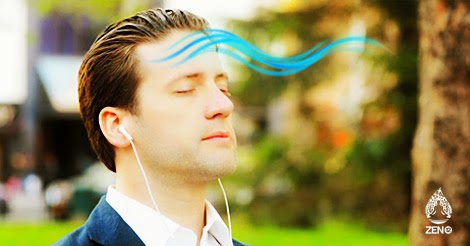How Hypnosis Can Give You Freedom from Fear
“The only
thing we have to fear is fear itself.”
This is a
line from the inaugural speech of President Franklin D. Roosevelt given on March 4, 1933 . Although the
great man wasn’t talking about phobias, there is a distinctive ring of truth in
his words.
Fear is, by
its very nature, irrational. No one expects to be eaten by a spider, or to be
set upon in a dark alley by goblins and ghouls. But human beings have this
amazing thing called an imagination, a two-edged sword that has the power to
create whole universes out of thin air on the one hand, or to frighten the
living daylights out of them on the other. When it’s the latter it can
seriously affect your quality of life, making even the simplest tasks seem like
insurmountable challenges.
How Fear
Manifests Itself
Irrational
fears are known as phobias, and they can be specific – as in the fear of clowns
or of bridges – or more general – as in agoraphobia, the fear of both open and confined
spaces. Thanks to the powerful imagination you’ve been blessed with, it’s
possible to develop a phobia about almost anything, and in most cases that
phobia will produce a series of reactions such as:
- Uncontrollable panic when
exposed to the source of your fear
- Heightened anxiety levels
- Physical reactions that might
include sweating, increased heart rate, and breathing difficulties
- The inability to function
normally due to increased anxiety and stress
- The urge to do whatever it
takes to avoid encountering the object of your fear
- Feeling powerless to defeat your fear
Often
people get anxious just thinking about what causes their fear, which only
serves to strengthen their emotional and physical responses in the future.
Fortunately, hypnosis is one of the quickest and most effective methods for
dealing with phobias.
Get Help
from Hypnosis
Hypnosis
works by guiding you into a state of relaxation. It lets you shut out the
outside world so you can bring your attention to a specific point of focus. This
can be achieved by visiting a hypnotherapist or through reputable hypnosis
recordings. In both cases you’ll be brought to a point where your mind is calm
and you’re open to suggestions.
Hypnosis
takes advantage of the fact that our imaginations are so vivid and limitless.
It helps us work through scenarios in safety and security, away from the things
we fear, using the power of suggestion to change the way we think. By replacing
old and outdated beliefs with new and positive ones, it’s possible to eliminate
the fear and all those associated reactions from our lives for good.
Deep down
you know your fear isn’t real. It’s a reaction that’s been programmed into your
mind, something you learned from your parents, siblings, friends, or even
through the media. The feelings have become ingrained in your subconscious, and
the only way to get rid of them and the behaviors they trigger is by replacing
them with others.
Hypnosis is
painless, non-invasive, and has no unpleasant side-effects. In most cases
you’ll simply feel like you’ve had a bit of a rest, coming back to your normal
wakeful state feeling refreshed and relaxed. Wouldn’t it be wonderful if all
treatments and therapies could get results that left you feeling so good?
And that’s
another thing that’s worth remembering. No matter how skeptical you might feel
about hypnosis, it gets results – and anything that improves your quality of
life has got to be worth a try.

































